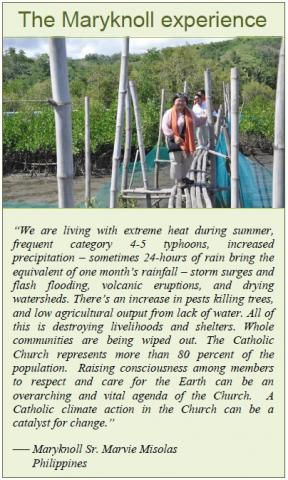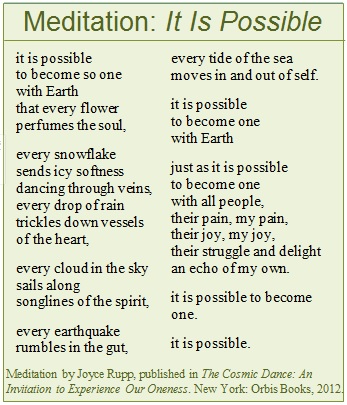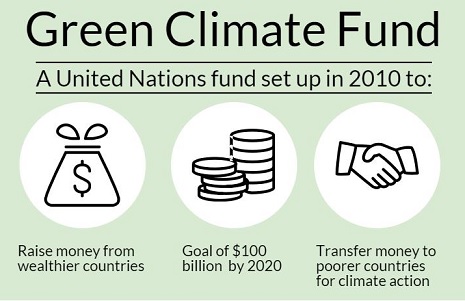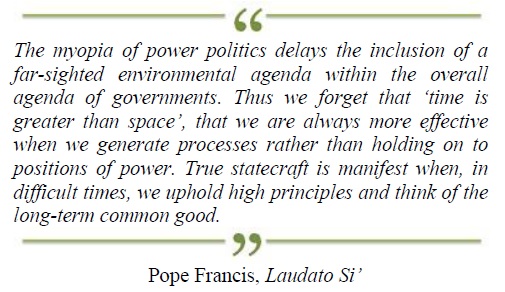
Each week during November 2015, MOGC offers a two-page prayer-study-action guide on the impacts of climate change and what we can do, leading up to the UN Climate Summit in Paris.
On November 8, 2013, Typhoon Haiyan, the strongest tropical storm ever recorded, devastated parts of Southeast Asia. The massive storm slammed into the Philippines leaving more than 4.1 million people displaced and 6,000 dead. Many of the approximately 16 million Filipinos living in extreme poverty were affected.
Typhoon Haiyan was not a “natural” disaster. Scientific evidence points to global warming from burning fossil fuels as a cause of the increased frequency and intensity of storms like this. Concentrations of carbon dioxide greenhouse gases in the atmosphere continue to reach record levels, at a record-breaking pace, resulting in more frequent extreme heat waves and heavy rain storms.
The tragedy of Typhoon Haiyan underscores just how vulnerable some countries are to climate change. There is a clear and present need for high-income countries to finance mitigation – to reduce greenhouse gas emissions (a root cause of climate change), and adaptation – to prepare for the consequences of global warming, such as extreme and erratic weather patterns.
The Intergovernmental Panel on Climate Change, a UN body, describes vulnerability to climate change as being determined by three factors: exposure to hazards (such as extreme and erratic rainfall), sensitivity to those hazards (such as an economy dominated by rain-fed agriculture), and the capacity to adapt to those hazards (for example, whether farmers have the money or skills to grow more drought-resistant crops). Mitigation can slow global warming while adaptation can reduce vulnerability.
A basic moral test is how our most vulnerable brothers and sisters are faring. This includes those nations most susceptible to the devastating impacts of climate change.
Make a personal commitment
 Curbing the world’s huge and increasing appetite for food and goods is essential to mitigate the devastation of climate change. We need new, more mindful ways of consuming.
Curbing the world’s huge and increasing appetite for food and goods is essential to mitigate the devastation of climate change. We need new, more mindful ways of consuming.
Share: Use less individually and more collectively
Sharing rather than purchasing new items saves natural resources and energy because less production and transportation is needed. Sharing also reduces the volume of our trash and saves money in purchasing and maintenance costs. You might even make new friends. Try lending items you don’t often use; even set up a community tool bank. Also, consider sharing car rides, working in a shared space, or giving away old items.
Eat less meat and fewer dairy products
Meat and dairy products are responsible for more greenhouse gas emissions than all cars, planes, trains and ships combined. They use thousands of gallons of water and tons of cereals. Consider abstaining one day a week.
Buy local food
Locally produced food grown during natural seasons is fresher and requires less energy to produce and transport. Also try canning fruits and vegetables for the winter.
Raise your voice
 Financing mitigation and adaption may be the most contentious issue before the nearly 200 nations meeting at the UN Climate Summit in Paris. The mechanism for this is the Green Climate Fund. The fund will support low-emission and climate resilient development in developing countries. So far, 37 countries have pledged a total of US$10.2 billion, and of that, President Obama has committed US$3 billion.
Financing mitigation and adaption may be the most contentious issue before the nearly 200 nations meeting at the UN Climate Summit in Paris. The mechanism for this is the Green Climate Fund. The fund will support low-emission and climate resilient development in developing countries. So far, 37 countries have pledged a total of US$10.2 billion, and of that, President Obama has committed US$3 billion.
Tell Congress to support the Green Climate Fund
Now it is up to Congress to make sure the money is allocated in the federal budget. The U.S. contribution is about the price of two B-60 bombers. The Green Climate Fund is a transformational fund to support women, small farmers, and to promote climate resiliency.
Send a letter to your member of Congress. Go to: http://bit.ly/Act4GreenClimateFund

Click HERE to see all four issues of Path to Paris
